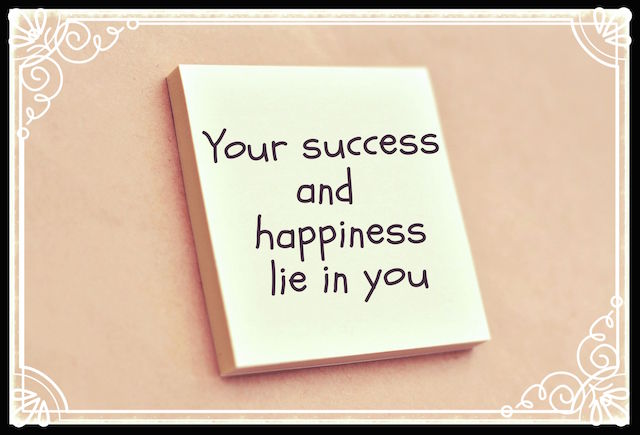
“…I kept trying to run away. And I almost did. But it seems that reality compels you to live properly when you live in the real world.” ~Kenzaburō Ōe, A Personal Matter
Recently I listened to an interview with author Kenzaburō Ōe, who won the 1994 Nobel Prize for literature. Ōe, who is now eighty-one, is a major figure in Japanese contemporary literature as well as playing an active role in the Pacifist and anti-nuclear movements.
When asked what accomplishment he was most proud of over his long and distinguished career, he answered, without hesitation, that for the past forty years he has been home every night to tuck his mentally disabled son into bed.
His answer hit me like a physical blow. For a good part of my adult life I was driven by my career.
Of course, I had a family to support. I had to work. But at times I was so focused that I put my own ambitions ahead of my family.
My work was in academia, and for more than twenty years I pursued the elusive tenure-track position. Nearly every professional move I made was carefully calculated to bring me closer to fulltime job security.
I attended conferences, wrote papers, taught overseas, and continually worked on my teaching methods. Then I found it—my dream job teaching English at a small community college in a small town.
About the same time I achieved what for many in the university world is the crème de la crème: a Fulbright research scholarship.
For six months I would live in northern India where I would research, write, and work on building a teaching exchange between the university in India and the college where I taught.
If anything, I thought the Fulbright would help secure my employment.
It didn’t. In a move I will probably never understand, three weeks before I was scheduled to fly home from India, the college ousted me.
At an age when most people are starting to think about retiring with some security, my career and financial stability were swept out from under my feet.
I felt betrayed, angry, devastated, and afraid. My spiritual practice of compassion and acceptance was put to the test. To this day, I have trouble forgiving colleagues who turned on me.
We humans are amazingly resilient creatures, though, and life has a way of presenting us with the lessons we need to learn. In the process of rebuilding a new career, I learned that my most important accomplishments have nothing to do with my resume.
What about you? Are your ambitions outside of yourself?
Job security, a nicer home to live in, good schools for our children are all valid ambitions, but alone they’ll only bring superficial happiness.
In a moment any one of them can disappear.
Instead ask yourself:
- Am I happy?
- Am I calm?
- Is stress a part of my daily life?
- Am I kind?
- Am I compassionate?
- Do I listen when someone needs me?
- Do I do my best?
It’s not easy to redefine yourself outside of a career. Often the first thing we tell a new acquaintance is what we do. I’m a teacher, an artist, a scientist, an entrepreneur, or clerk at a grocery store. It’s almost as if just being human isn’t enough.
Eventually, I was able to look back at the job I’d lost more dispassionately. I saw former colleagues burnt out before the semester started and a climate of vicious college politics. At least four different instructors came and went in three years as they tried to fill the position they’d kicked me out of.
Then I quit paying attention.
After a short stint with the local newspaper, I moved to a quiet, isolated place on the high desert away from town. An online teaching job at a different college gave me enough money to get by, and I began selling some articles and photographs.
Sometimes I still struggle with the underlying feeling that I’m not living up to my potential. After all, I spent years and a lot of money to get a Masters degree. Teaching was my career.
Had I really given it up to live in a dusty little town that looked like it had slipped off the side of the highway?
Time and a meditation practice helps, and whenever those feelings that I should be doing more arise, I have to admit something else as well. I am far less stressed than I have been in years and creatively I’m flourishing.
After listening to the interview with Kenzaburō Ōe one summer afternoon when it was too hot to go outside, I began to read some of his work.
He writes about displacement, about the lies we tell others and the lies we tell ourselves to survive. And he writes about quiet triumphs and living well and with integrity. He writes about the way his mentally disabled son brings unimagined depth to his love.
Today my accomplishments are quiet ones. I try to live as well as I can, practice forgiveness, especially when it’s hard, and to be there when others need me. I try to love well.
My life is far from perfect and there are many things I would still like someday: a home by the ocean, a fireplace, a car with a working air conditioner, and a bottle of Shalimar perfume. But I don’t base my happiness on these things, and if I never get any of them, it won’t matter.
Even though all my work is online, I still sometimes get tired from grading papers or finishing an article at the last minute, but it doesn’t stress me out in the same way it used to because I work on my own schedule.
We probably all know the maxim it’s the journey, not the destination that matters, and this may be the most important lesson losing my dream job reinforced.
The meaning of accomplishment has changed. I have less money but more control over my time. And the time I do have, I never feel is wasted even if I’m just sitting and staring out the window.
There’s beauty in simplicity, and peace can be found when we’re happy with what we have instead of what we want.
What do you want to accomplish most in life?
Success and happiness image via Shutterstock
About Leslie Jordan Clary
Leslie Clary is a writer, photographer and online college instructor who believes it’s never too late to create a life we will love living. She writes a monthly newsletter, Our Daily Zen, and is working on a book about healing from child sexual abuse.













 Though I run this site, it is not mine. It's ours. It's not about me. It's about us. Your stories and your wisdom are just as meaningful as mine.
Though I run this site, it is not mine. It's ours. It's not about me. It's about us. Your stories and your wisdom are just as meaningful as mine.
Hi Leslie,
Beautiful post.
It’s so true that a lot of people do say first what they do. And when I think about it, a lot of people also ask what another person does.
Humans are simply naturally like that, in my opinion. We want some validation, and we tend to conform to standards the world has set for the concept of “accomplishment.”
Thanks, Leslie. Thanks for sharing Kenzaburō Ōe’s beautiful story, too.
Being able to do my best is, so far, what I’d like to accomplish in life 🙂
Ethan – I agree with you that humans naturally tend to ask about a person’s job. I do it too. Work is an important part of our daily existence and it can be wonderful part when we love what we do. Too often, though, we get stuck in work that’s not fulfilling.
The problem is the environment you were working in! Academics are the most petty, insecure, envious, and small-minded people in the world!
I was a full professor (tenured) and a vibrant and contributing member of my department. I chaired and also serves on numerous committees (including hiring committees), initiated and spearheaded numerous programs to put my department on the map, mentored junior faculty, supported colleagues by proofreading their books and other publications, helping them develop curriculum for their classes, loaning and giving numerous teaching materials and resources, and on and on… Too man contributions to list here, but you get my point.
Well all seemed well for years (over 14 years actually!)..
And then, I got sick. Sick from the same deadly virus that took the life of my only sister (which my “friends” in the department knew all about… Many of them had even met her since she used to visit me years before her illness and death!)…
One colleague “friend” I confided in that I was about to start a brand new but brutal chemo treatment that had a very good odds to kill the deadly virus that was ravaging my body (when I started to fall ill to the virus, it happened scary FAST!) advised me to wait until a “better time” to start the potentially life saving treatment, until we hired more faculty and our pregnant colleague gave birth (!!!!)
Needless to say, I didn’t heed that selfish counsel, and I started my treatment… The effects of which were everything the warnings stated … And MORE! Many times I thought I was gonna DIE, and many even MORE times I wished I would!!!
So I started my treatment and my colleagues and “friends” shunned me. Total block out. When I walked into a room, they’d scowl and walk out. If people were talking when I cane near, they’d all fall silent and stare with hateful mean expressions.
Then while I was literally confined to my bed I had to hire help to come in to bring me groceries, help me change my bedsheets and my cats’ litter boxes, even to do my MAIL!!! That was fine! The people I worked with had made it clear that no support or help would be coming from them, so I wasn’t surprised…
Even though these were the very same people that I had played a part in hiring, promoting to tenured positions, helped when they were sick or in trouble, etc)…
One time I collapsed in the stairwell right in front of a gaggle of them (to my horrified mortification!), and they just pretended not to notice and walked away! I managed to recover without their help and struggled the rest of the way up the stairs to lay in the floor in the my office to catch my breath and to try to stop crying, I was SO SCARED!!!
What DID surprise me was how — while I was still laid low and fighting for my life (I lost 60 pounds while I was on chemo!), they were no longer satisfied to passively shun me… That’s when they started to aggressively harass me!
The chair of my department (egged on by the former “friend” who wanted me to wait to be treated) began to make my life impossible. Demanding me to do things that my physician ruled against, going behind my back to turn my other supervisor against me (I taught for two departments until he saw to it that I was kicked out of the other department), making numerous unreasonable demands, writing me up on trumped up false charges so I had to struggle in to work to attend HR meetings with him (I could barely walk!), etc.
I worked for a year after I finished my treatment against all odds and in the most hostile and toxic environment I’ve EVER experienced in my entire life!
Finally I could take it no more and I resigned and moved as far away from that hated place as I could!
Now I’m working part-time doing adjunct and academic consulting work. It’s not easy but it’s PARADISE compared to what I’d been through.
Wow, Divine, what an incredible story. It resonates so truly with so many I’ve heard as well as my own experience. I’m glad to hear you’re still teaching part time. I love my online students and am inspired by them all the time. I think part-time is absolutely the way to go. You can focus on teaching and the students, not committees and politics!
If this article was one of your little jobs that do not add much to your financial success, I would like you to know that it helped me today.
Thank you, Carol! That means more to me than any financial success.
Here is something to pay attention , a great opportunity for work for those who want to use their free time to make money using their computers… I have been doing this since last two years and I am making 40 to 70 dollars per hour … In the last week I have made 12,245 for almost 18 hours sitting ….
?There are no special skills required just basic typing and an internet connection ….
?There are no time constraints … You may do this any time when you are free ….
?Here is what I’ve been doing….
< ->>www.youcanalsochangeyourfatelikeothersare.blogspot.com >
)d
Thanks for sharing your journey and Kenzaburō Ōe’s book with us. Great reminder of the important things in life, and how our priorities often don’t align with them.
Start Making Cassh Right Now. Start your home business for free Now. No Skills Required For This W0rk. Just go To this Web Site And Register Your Account For Making $ 12000 Every Month…….tg
======>>>>> 1) Go To my Profile For the site address and get free account for lifetime.
2) Open It and Just fill up a free form With your name and Email
Here is something extremely interesting that is worth to pay attention , a superb opportunity for work for those who want to utilise their free time to make some extra money using their computers… I have been working on this for last two and half years and I am earning 50-80 dollar/ hour … In the past week I have earned 13,245 dollars for almost 20 hours sitting ….
Any special kind of skills or qualification is not required for this, just normal typing and a reliable internet connection ….
Time limitations are not here to start work … You may work on this any time when you get some time ….
Check it out how I’ve been doing this….view WebsiteIink on my` profile` to know how I use to work on this`
*xd
My ex broke up with me for the fact that he wanted space, i tried telling him how much i love him but he was just so stubborn, he suddenly changed, he started cheating, I was so hurt and depressed. so a friend suggested the idea of contacting a powerful man that can help me bring him back that this man helped her before, which I never thought of myself. after i contacted iyareyaresolutiontemple@gmail. com for his help. I asked him to please help me do anything that will bring him back and make him love me more then before, but before the work was done, I was a bit skeptical about the capacity to bring my lover back to me. 3 days after the work was actually done, my lover transformed, he returned to me and since then there is no more mistrust and no more lies between us. He doesn’t cheat anymore. there is no word to say how grateful I am, I am leaving a testimonial on this page, Dr Iyare. ,
.
I love this – thank you 🙂 This really helped me.
Thank you for this beautiful story and poignant reminder to cherish the live we have and not the one we think we should want. I understand completely having my goals thrown back in my face and having to redefine success and accomplishment in my own way.